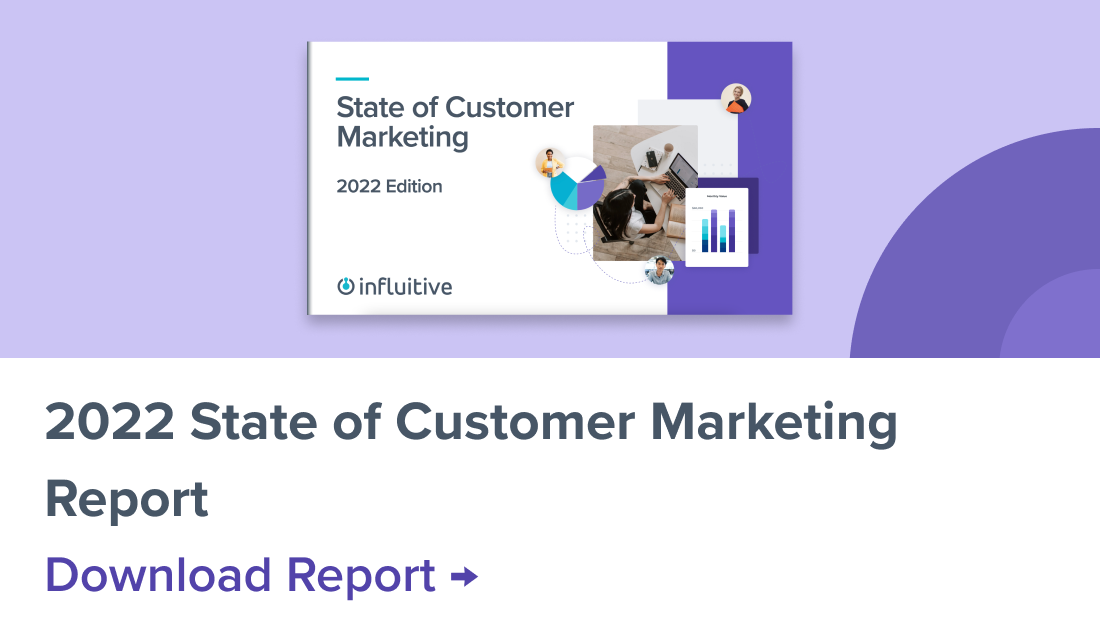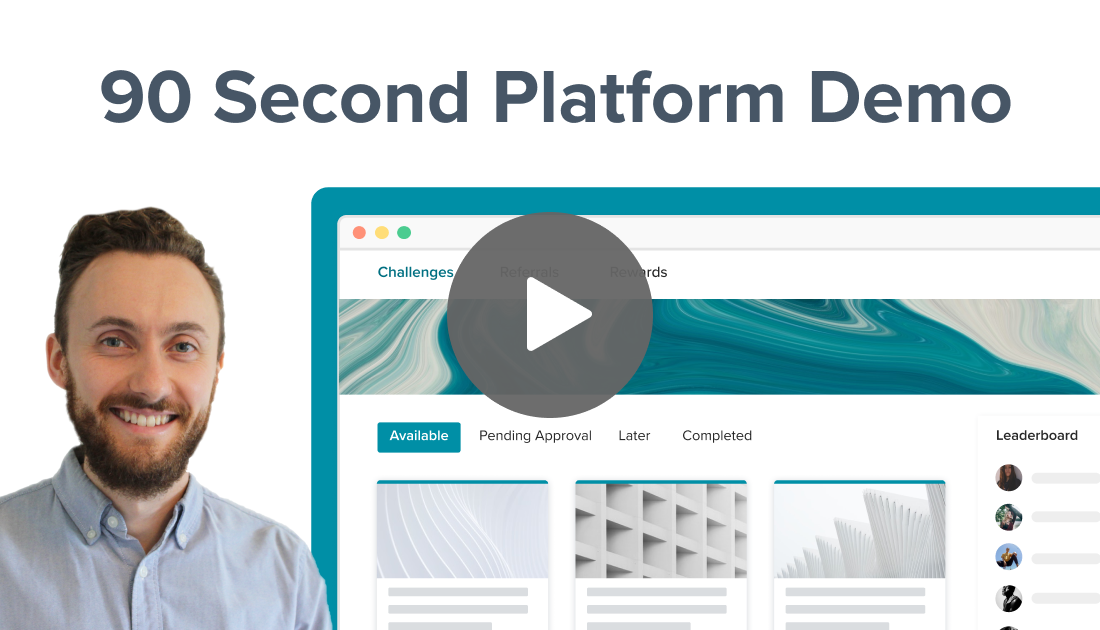ADP is known throughout the world for their human capital management services. In fact, your paycheck might just have ADP’s name on it.
In recent years, the way customers learn about ADP’s services has changed. They now conduct extensive research online and seek recommendations from their peers before they speak with a sales rep.
 ADP wanted to harness the power of their happy customers to drive word-of-mouth recommendations. To achieve this goal, they decided to expand their reference program into a customer advocacy program.
ADP wanted to harness the power of their happy customers to drive word-of-mouth recommendations. To achieve this goal, they decided to expand their reference program into a customer advocacy program.
“We were going to build a system to find, track, and manage customer references,” says Nithya Narasimhan, Vice President of Client Experience and Innovation at ADP. “But we quickly realized that references were just one piece of the puzzle.”
The power of advocacy impacts all areas of the business
As Nithya researched reference programs, she discovered customer advocacy.
“As I dug into it, the field of advocate marketing kept coming up,” says Nithya. “I realized that a reference program is very narrow in focus and that there are so many more ways customers can advocate for us.”
ADP partnered with Influitive to launch an advocate marketing community, called the ADP Ambassador Rewards Program. Through the program, Ambassadors are playing a key role in ADP’s client success, marketing, sales and product development initiatives. Essentially, advocates have a positive impact on every area of the business – making ADP a true customer-powered enterprise.
5 keys to a successful customer advocacy program
When HR professionals join ADP Ambassador Rewards, they have opportunities to learn new skills and network with their peers. Every time they complete an advocacy “challenge,” such as providing a testimonial, they receive points that they can redeem for rewards. ADP’s most popular rewards include swag, tickets to their annual conference and donations to a charity of the month.
Here is how ADP is engaging HR advocates to drive results across every area of their business:
1. Don’t just focus on your top promoters—invest in the success of all customers.
When companies launch an advocate marketing community, they tend to ask customers with high Net Promoter Scores (NPS) to join. After all, these customers are the most likely to refer you to others.
But ADP saw an opportunity to increase loyalty by opening ADP Ambassador Rewards to all of their customers. ADP allows customers to log into their account and the advocate portal with a single sign-on. Giving all customers access to ADP Ambassador Rewards has led to a surprising result. Customers who were not Net Promoters improved their scores after they became Ambassadors. In fact, Ambassadors have an NPS that is 22 percent higher than other customers.
2. Focus on customer-created marketing content
B2B buyers trust what their peers say – not what vendors say. They rely on recommendations from their friends and co-workers before they make a purchasing decision.
 To engage buyers, ADP is mobilizing advocates to provide positive word-of-mouth. For example, ADP asks Ambassadors to write online reviews, provide testimonials and share their content.
To engage buyers, ADP is mobilizing advocates to provide positive word-of-mouth. For example, ADP asks Ambassadors to write online reviews, provide testimonials and share their content.
“Our advocates are helping us reach a wider audience,” says Sarah Schreiner, ADP’s Senior Strategy Analyst, Client Experience. “We can now connect with buyers earlier in the sales process and convince them that we can solve their HCM challenges.”
3. Use your AdvocateHub for upselling and cross-selling
Advocates are helping ADP shorten their sales cycles by serving as customer references, providing testimonials and writing online reviews.
And, since it’s easier to sell more to existing customers than to find new customers, ADP has leveraged their AdvocateHub for upselling and cross-selling. They do this by posting information about new products and features in the Hub. This allows them to get the right products in front of the right buyers.
“ADP Ambassador Rewards has helped us learn more about our customers’ needs and pain points,” says Nithya. “This information takes the guesswork out of our sales processes and allows us to showcase products that align with what customers want.”
4. Collect product feedback to always improve
As a customer-powered enterprise, ADP relies on feedback from their advocates. They use their Hub to collect feedback that helps them build better products.
In fact, advocates are involved in every stage of ADP’s product development—from ideation to adoption. For example, they provide feature suggestions and serve as beta testers. They also take part in the exciting, confidential projects at the Innovation Lab where ADP develops new technology.
“We used to have a hard time finding customers who were willing to give us feedback,” says Nithya. “But now we have a large pool of advocates who have already raised their hands to help. We simply post a challenge in our AdvocateHub and can collect responses within minutes.”
5. Celebrate your advocates at live events
ADP recognizes their top advocates at their annual conference, ADP Meeting of the Minds. To do this, they identify engaged advocates through their AdvocateHub’s backend data.
Then, they match each advocate to opportunities. For example, ADP will offer Ambassadors special seating, invite them to private networking events, and surprise them with swag. The most engaged advocates earn the chance to meet the keynote speaker and ADP leadership teams.
“HR professionals often don’t get the recognition that they deserve,” says Sarah. “We like to thank advocates for everything that they do by giving them the VIP treatment.”
Results: 3,500+ advocates help ADP drive growth across all areas of their business
Since launching the Ambassador Program in February of 2015, ADP has achieved the following results:
- 3,800+ advocates joined the program
- 22% higher NPS for advocates than for other customers
- 712 testimonials collected
- 43 online reviews posted
- 1,909 webinar registrations
- 15,000+ social shares that generated 56,000+ clicks
- 914 advocates gave product feedback
- 9,000+ hours of admin work saved
- 24 customer success stories submitted through the employee Hub
“We started with a narrow view of success—getting more customer references—but now have a much larger system of advocacy that impacts all areas of our business,” says Nithya. “Our advocates have become a core part of our community and organization.”
 ADP wanted to harness the power of their happy customers to drive word-of-mouth recommendations. To achieve this goal, they decided to expand their reference program into a customer advocacy program.
ADP wanted to harness the power of their happy customers to drive word-of-mouth recommendations. To achieve this goal, they decided to expand their reference program into a customer advocacy program.










































 To engage buyers, ADP is mobilizing advocates to provide positive word-of-mouth. For example, ADP asks Ambassadors to write online reviews, provide testimonials and share their content.
To engage buyers, ADP is mobilizing advocates to provide positive word-of-mouth. For example, ADP asks Ambassadors to write online reviews, provide testimonials and share their content.